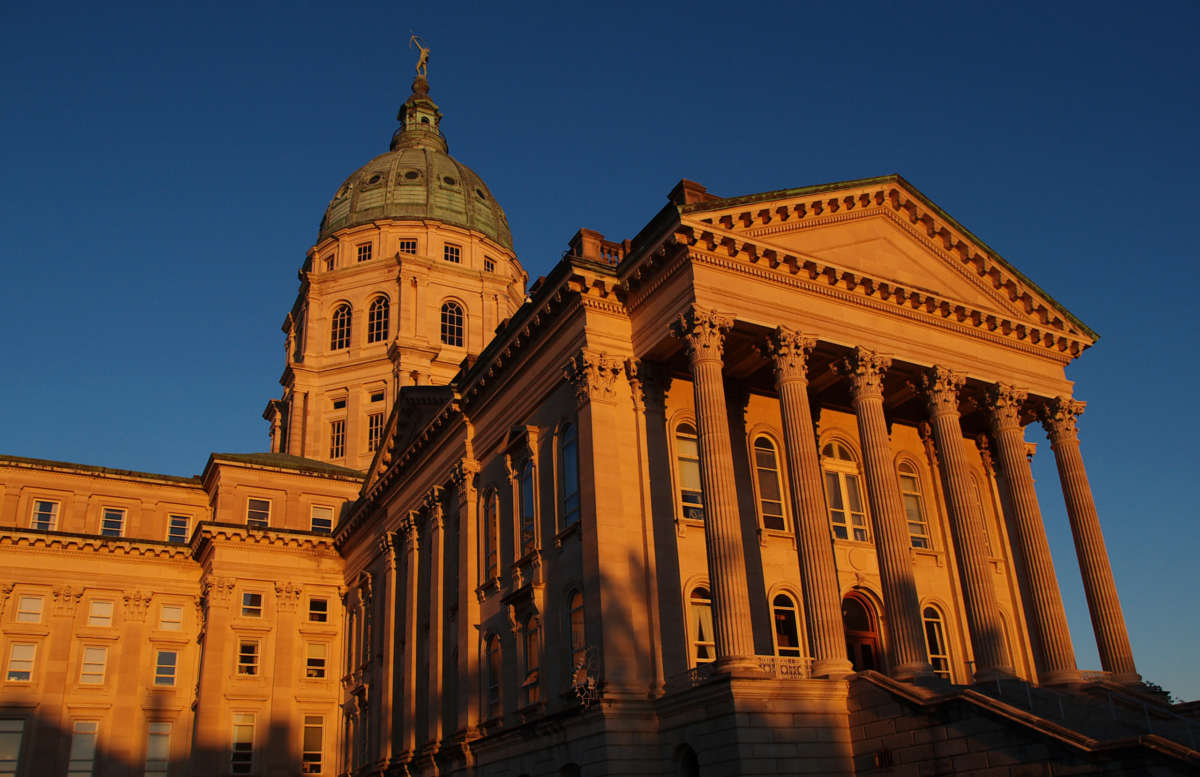Sixteen residents from three counties in Kansas have filed a legal challenge to the state’s newly drawn congressional districts maps, which the Republican-led state legislature passed earlier this month.
A number of voting rights organizations have joined the lawsuit, including the American Civil Liberties Union (ACLU) of Kansas and the Campaign Legal Center. A separate challenge to the maps has been filed by Democracy Docket, a national organization led by Democratic voting rights lawyer Marc Elias, and Loud Light, a state-based civics engagement group that aims to empower young voters.
The lawsuits contend that the new maps were designed with the specific goal of increasing Republican representation — and with the aim of defeating the only Democratic member of Congress, Rep. Sharice Davids, by making her district more difficult to win in the 2022 midterm election.
The ACLU alleges that the new map is an “extreme and intentional” political gerrymander that dilutes the representation of non-white communities.
For example, the map splits Wyandotte County, placing a large portion of the county’s Black and Latinx communities into a rural and majority-white district nearby. The new map also dilutes the voting power of progressive- and liberal-leaning voters in Lawrence County, placing the county within the same boundaries as the 1st Congressional District in the state, which is also more rural and traditionally conservative.
“The Enacted Plan was deliberately designed to consistently and efficiently elect exclusively Republicans to Congress, and specifically to prevent Democratic voters in the Kansas City Metro Area from electing their preferred candidate, currently Congresswoman Sharice Davids,” the ACLU lawsuit states. “Republican legislative leaders didn’t even try to hide it.”
“The people in the Kansas City metropolitan area have a real need and desire to elect representatives that are going to represent their interests in Congress,” said Sharon Brett, the legal director for the ACLU of Kansas, in a separate statement. “What this map does is basically run roughshod over those interests and over those desires and does so for political gain.”
Notably, the lawsuits are within the state judicial system rather than the federal one, the first time a challenge to Kansas’s congressional maps has been made in that arena. It’s possible that this choice was made on account of a 2019 Supreme Court decision that ruled federal courts can’t strike down maps based on political gerrymandering, as well as a more recent Supreme Court decision that left racially biased maps in Alabama in place.
The challenges to the maps hope to use the Equal Rights and Political Power clauses of the state’s constitution to provide a basis for why the maps should be struck down. The lawsuits are asking the state courts to require the Republican legislature to draw a new, compliant map, or failing that, have the courts draw them instead.
The maps in question were passed earlier this month, defeating a veto from Democratic Gov. Laura Kelly, who tried to stop them from being implemented after describing the maps as being “really bad for Kansas.”
The congressional map “separates real communities of interests, in ways that disenfranchise select groups,” Kelly said. “There’s no doubt that the way Wyandotte County was cut in half, in this map, that will not disenfranchise our communities of color.”
Media that fights fascism
Truthout is funded almost entirely by readers — that’s why we can speak truth to power and cut against the mainstream narrative. But independent journalists at Truthout face mounting political repression under Trump.
We rely on your support to survive McCarthyist censorship. Please make a tax-deductible one-time or monthly donation.
